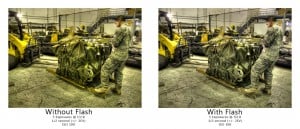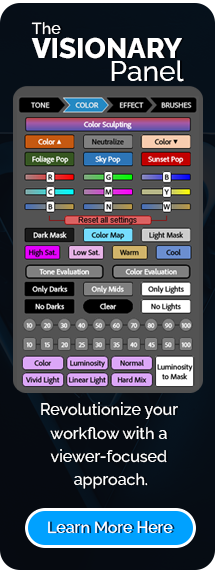I recently purchased the Olympus FL-50R Flash and absolutely love it. If you can find a proprietary flash that uses Through The Lens (TTL) technology, do it! So I had been thinking, “Blake, there has got to be a way you can use this flash in HDR photography.” So as usual, I started experimenting. I tried shooting a bracketed set of images with the flash on and found that the flash would fire every time because the recycle rate is incredible. That is great for a wedding photographer, because you can fire that bad boy all day long and it can keep up with every exposure. With HDR photography that means that the focal point will be perfectly lit in every exposure and only the ambient light will change. Back to the drawing board, I could buy a cheaper flash with a piss poor refresh rate, but then that doesn’t justify me spending 400 bones on a bad ass flash. Then the obvious hit me and here is how to do it:
- Turn on your flash.
- Set up a bracketed set of exposures.
- Fire the first shot.
- Turn the flash off.
- Fire the next 4, sans flash.
You may be thinking to yourself, “Why wouldn’t he just shoot one picture and then make 4 more exposures in Photoshop, or do a single image raw tonemap?” If I can shoot the bracketed set of exposures I will. I very rarely use the Pseudo HDR method, there is a huge difference in the quality of the finished product.
I recently had the opportunity to test my theory this week at work. I had been tasked with photographing individuals working in my career field for a conference. Why not strut my HDR stuff? Here are the results. Neither image had any Photoshop work, straight from the camera (with all of the same settings) to Photomatix and onto the website.
Give HDR a shot with your flash (Nikon, Canon, Pentax, Samsung, Sony, Leica)! It makes a difference in the final image, the quality of light is much better. Just remember to turn your flash off after the first exposure.










Nice shot. Question, most hdr starts with first exposure being the two stops over. That’s the one you had the flash on? Or did you start with the correct exposure first?
I started with the flash on the first exposure. Really was just an experiment. I am still trying to incorporate the flash more accurately. But for this one, it was on the first exposure, the 0 EV Exposure.
Hi, this is really good tip 🙂 Thanks. Try AuroraHDR for better bracketing results too.